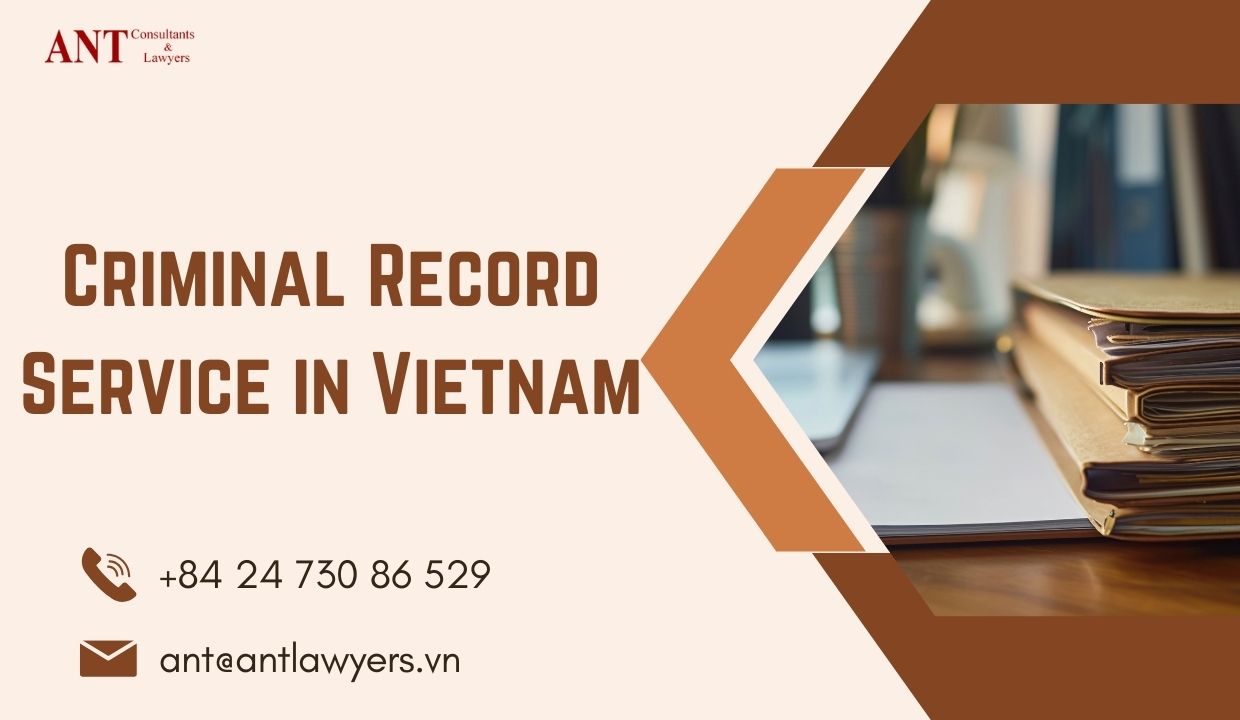Criminal record cards or Police check provides criminal or judicial information about a person in Vietnam. Individual could apply for criminal record him/herself or seek help from criminal record service in Vietnam. The Vietnam law on criminal record governs the process to obtain the criminal records cards.
Why one needs criminal record in Vietnam?
In Vietnam, individuals may need a criminal record certificate for various purposes. Some common situations where a criminal record certificate might be required include:
Employment: Certain employers, especially government agencies, private companies, or organizations dealing with sensitive information or security matters, may request a criminal record certificate as part of the job application process. This is to ensure the applicant does not have any criminal history that could be a potential risk to the organization or its clients.
Visa and Immigration: When applying for certain types of visas or residency permits in Vietnam or in another country, the immigration authorities may require a criminal record certificate as part of the visa application process. This is to assess the applicant’s background and determine if they pose any security risks.
Adoption: For individuals looking to adopt a child in Vietnam or from Vietnam, a criminal record certificate might be required by the adoption authorities to ensure the prospective parent(s) meet the necessary criteria for suitability.
Education and Training: Some educational institutions or training programs, especially those involving vulnerable populations like children or vulnerable adults, may require a criminal record certificate from prospective teachers, instructors, or volunteers.
Licensing and Certification: Certain professions or activities may require individuals to provide a criminal record certificate as part of the licensing or certification process. This could include roles in healthcare, law enforcement, security services, or financial sectors. Part of documents applying work permit in Vietnam also include criminal record card.

How to apply for criminal record in Vietnam?
Accordingly, to obtain the Criminal Record cards in Vietnam, the applicant must apply at the provincial/ municipal Justice Department in Vietnam.
For foreigners residing in Vietnam, he/she has to submit the request to the Department of Justice where he/she resides and receives the results at Justice Department.
Documents required are:
i) the written application form;
ii) certified photocopies of passports;
iii) a copy of the permanent or Temporary resident card in Vietnam;
iv) authorization letter in case of authorized application for Criminal Record card (if the authorized persons are not the parents, spouse or children). The written authorization must be certified or authenticated in accordance with the law;
v) application letter for granting Criminal Record.
During the process of applying for the Criminal Record, the applicant might has to work with the Public Securities agencies; the Court: in case there are not sufficient evidence at the police agencies to conclude that the applicant has no criminal records or the content of the applicant’s criminal records is not clear; People’s Committees of communes, wards and townships; agencies, organizations and agencies related proceedings: in case of coordination to verify the conditions of having his/her conviction automatically written off.
How to request criminal record service in Vietnam when you are not in Vietnam?
In practice, there are cases when the foreigner already left Vietnam and now he/she is in need of criminal record for the time he/she resided in Vietnam. You could authorize a law firm in Vietnam to assist. We have successfully assist clients in various cases and that we would provide criminal record service in Vietnam for the client.
Our lawyers in Vietnam constantly follow up with changes of law to provide the client with update for better decision making process.
We help clients overcome cultural barriers and achieve their strategic and financial outcomes, while ensuring the best interest rate protection, risk mitigation and regulatory compliance doing business in Vietnam.
ANT lawyers have attorneys in Hanoi, Ho Chi Minh and Danang.













